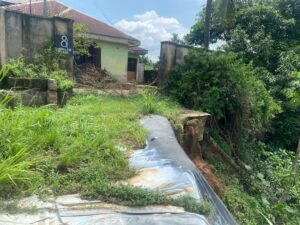Shell divestment: CSOs want ecological, health, others addressed first

Nathan Tamarapreye, Yenagoa
Some Civil Society Organisations (CSOs) focused on environmental rights advocacy have demanded that Shell UK address the ecological impact of its operations before the sale of its onshore business in Nigeria.
Shell PLC UK, the parent company to Shell Companies in Nigeria on January 16 announced its decision to sell its Nigerian onshore subsidiary, Shell Petroleum Development Company (SPDC).
It was learnt that SPDC’s parent company agreed to sell the onshore operations in Niger Delta to a consortium of four domestic and one international oil company.
The acquisition is for $2.8 billion, subject to the approval of the Federal Government of Nigeria.
The CSOs urged the regulatory authorities and the Federal Government to withhold approvals to the deal until the impacts of several decades of pollution of the Niger Delta by SPDC’s operations are addressed.
The six CSOs made the position known in a statement signed by their representatives on Thursday.
The statement was endorsed by Dr Nnimmo Bassey, Health or Mother Earth Foundation, Mr Ken Henshaw, We The People, Mr Akinbode Oluwafemi, Corporate Accountability & Public Participation Africa.
Others are Emem Okon- Kebetkache Women Development and Resource Centre, Tijah Bolton- Akpan, Policy Alert and Stephen Oduware- Niger Delta Alternatives Convergence.
“As civil society organizations in Nigeria who have worked in the Niger Delta in the context of oil and gas extraction and its attendant ecological, economic, social and health impacts.
“We have keenly observed the scheming by Shell to sell off its onshore assets in Nigeria despite clear protestations by communities and civil society organisations.
“This transaction follows similar moves by Chevron, Total-Energies, and ExxonMobil to sell off onshore oil assets in the Niger Delta.
“While we acknowledge that businesses have the right to dispose of their assets as they see fit, we are concerned about the manner in which this transaction is carried out, as well as the immediate and long-term implications for communities and the cause of ecological justice,” the CSOs stated.
They expressed concerns on the host communities who have endured the impacts and inconvenience of oil extraction for over six decades.
They noted that it is worrisome that the host communities have not been consulted or informed of this planned sale as the communities only learned from the news that oil assets in their ancestral lands and rivers are on sale.
“Shell has persistently engaged in irresponsible and reckless hydrocarbon extraction practices resulting in severe ecological, health and economic consequences.
“Multiple inquiries have determined that the corporation and its associates are responsible for environmental destruction that has devastated people’s means of living, contaminated communities, and facilitated situations that violate human rights,” the statement read in part.
The coalition noted the Nigerian government and its regulatory agencies have yet to come up with a guide, policy or blueprint establishing the conditions and modalities for oil company divestments.
According to them, divestments so far, have happened haphazardly in manners solely determined by oil companies, paying little or no attention to the broader ecological, economic and social impacts bequeathed to communities.
“While Shell continues to downplay its role in the ecological damage of the Niger Delta, assessments by reputable organizations have indicted the company over environmental pollution.
“In 2011, the United Nations Environment Programme (UNEP) released its findings on the impacts of hydrocarbon pollution in Ogoniland, an area operated by Shell.
“The assessment revealed severe contaminating of drinking water sources and exposure of communities to health risks.
“Drinking water was found to contain cancer-causing Benzene 900 times above permitted levels,” the group stated.
According to the statement, another environmental and social impact assessment conducted in Bayelsa showed that between 2006-2020, SPDC accounted for 75% of oil spill incidents in the Niger Delta.
The CSOs said the pollution cause massive health damages, environmental pollution, loss of livelihoods and displacements.
The findings of the assessment reveal that there is a 1.5-barrel crude oil per capita pollution in the state besides some heavy metal pollution that are up to 1 million times above safe limits.
“Given the well-established social, health, economic, and ecological impacts of Shell’s operation, it is inconceivable that the company intends to merely sell its holdings and go.
“The selling of assets by Shell and other oil multinationals, is easily an effort to evade accountability for the long-standing damages caused by oil extraction in the Niger Delta.
“It is pertinent that Shell owns up to its responsibility for the ecocidal damage of territories they have exploited.
“This means full payment for the remediation and restoration of the polluted areas as well as reparations to the host communities. They cannot walk away from the grave and irreparable harm they have caused,” the group said.
They urged the federal government to place a moratorium on all oil company divestment or sale of assets in the Niger Delta, pending the ascertaining of issues of community concern.
“The federal government to immediately produce a framework and guide for how oil companies disengage from areas where they have operated.
“This guide should be developed by a multi stakeholder group including communities and civil society organisations,” they s5ated.
The demanded that the proposed divestment framework must contain a post hydrocarbon impact assessment report that establishes the exact ecological and livelihood impacts of oil extraction.
The group also called for a health audit of people located near extraction sites, and others exposed to oil contamination and gas flaring, the audit should show the negative health impacts of exposure to hydrocarbons.
According to them, there is need for a detailed plan and costing for remediating the ecological, livelihood and health impacts of extraction.
“The establishment of independent frameworks for remediating all identified impacts and compensation to the impacted individuals and communities.
“Posting of funds in a designated account commensurate for the cleanup of impacted ecosystems and restoration of livelihoods,” the CSOs said.







